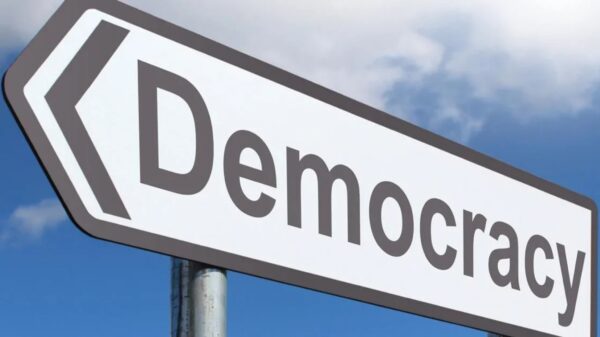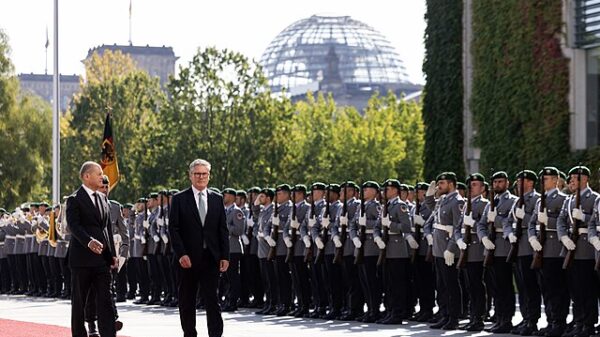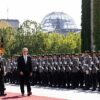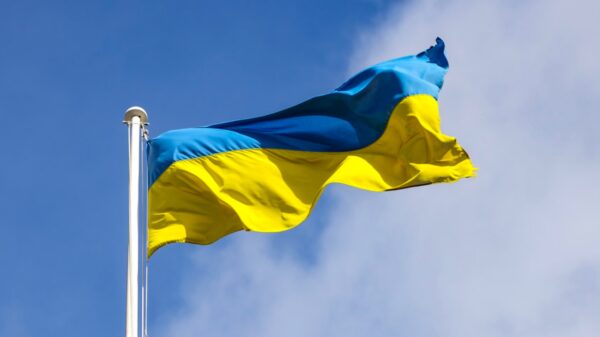Staff writer James Westmacott on how Russian aggression has finally forced Germany to rebuild its military for the first time since World War II.
As the refugee-filled trains roll into Berlin Hauptbahnhof, hundreds of locals have gathered to welcome them to safety. Arriving at the very location once pummelled by Allied bombers during World War II, this time it’s Germany able to return the favour to those escaping the war. How times have changed. Though, in more ways than one has the Russian invasion of Ukraine hit home for Germany. A country – unfortunately too familiar with war – has recognised the need for action.
On February 27th, an emergency parliamentary session was called in the Bundestag in order to discuss the savage Russian bombardment of Ukraine. After over 75 years of German pacifism, recently elected Chancellor Olaf Scholz took the decision to remilitarise his nation in what comes as one of the greatest shifts in the history of European foreign policy. Scholz announced that €100 billion (£84 billion) would be injected into the Bundeswehr, the German army, essentially reneging his country’s long-standing commitment to demilitarisation. As Scholz stood down from his speech, an audible ripple of applause cascaded the parliament building, mired amidst meagre boos while some were left stunned in silence. What makes this move particularly extraordinary is that just two weeks ago it would have been politically unimaginable, and socially and culturally impermissible. Germans unfortunately know too well the dangers of heightened militarism, thanks to a remorseless, shameful history. But that’s also exactly why Germany feels such great responsibility at a highly pressing time. Russia’s invasion of Ukraine has rescinded terrible memories. Putin has ultimately brought war back to Europe.
Haunted by its past, a cavernous trauma remains embedded within the German collective psyche, which has inevitably led to a sense of great squeamishness and taboo within the realm of global affairs and military action. Its impassioned reluctance to sufficiently fund and equip its military is evidenced by decades of persistent political neglect, highlighting just how ineradicable the nation’s hangover of imperious Nazi rule is. Burdened by this immense level of guilt, Germany has long felt that reigning in its own military power has been key to ensuring peace on the European continent, which is why anti-militarism and pacifism in Germany has often been worn as a badge of honour. The ghosts of Germany’s Nazi past will never be truly shaken off, but perhaps the nation is no longer disposed to let it blind them. Chancellor Scholz, backed up by unwavering public support, has therefore announced not only the prodigious military budget increase, but also that miliary gear, missiles and anti-tank weapons are to be sent to Ukraine. Germany has for decades soaked up the pressure from its eastern NATO neighbours over the Russian threat, yet it would appear that following Russia’s invasion of Ukraine, a great power has finally awoken.
Following the collapse of Nazi Germany in 1945, and the nation’s division into the communist east and capitalist west, a brake on militarism was applied given the calamitous bloodshed caused by German military expansion. Despite the Federal Republic of Germany’s creation in 1949, it was not until 1955 that it possessed an army, with the Bundeswehr created only as a civilian body tasked with defending the state, proscribed from entering into conflicts abroad. Whilst the Western powers were initially reluctant to permit German remilitarisation, the looming Soviet threat forced their hand. As a result, the Bundeswehr was established, and West Germany was admitted into the NATO alliance.
The Soviet Union viewed this move as a threat to their own power, and subsequently inaugurated the Warsaw Pact, which included East Germany. The East-West German sunder was now characterised by antagonisms between NATO and the Warsaw Pact, with the latter fundamentally designed to forestall the burgeoning power of the former. All of a sudden, Germany found itself at the heart of the augmenting Cold War conflict, with intensified militarism on both sides ultimately threatening nuclear war. It therefore comes as no surprise that much of the German population remained distinctly pacifist, with West German activism throughout the 1960s, 70s and 80s becoming synonymous with anti-war peace movements.
With the disintegration of the Soviet Union in the early 1990s, and its most grave military threats relinquished, a now-reunited Germany’s innate pacifism rumbled on. Despite incrementations in army size and connivance in military conflicts abroad, Germany’s military commitment has always been heavily questioned by its allies. A vast array of American presidents have come and gone, all having impatiently harangued Germany to commit to more substantial military strength, particularly given its nature as the largest country firmly within the European continent.
Orchestrating Germany’s commitment to meeting NATO’s 2% spending target has proved to be incredibly strenuous, with the German leadership over recent decades remaining entirely obstinate. Germany’s eastern neighbours – countries who’ve historically held more extensive ties to Russia -have long grumbled over Germany’s disinclination, and have indisputably alerted Germany of the menacing Russian threat. And for too long, those cries have been ignored. But the switch has flicked. Such pacifism has unfortunately become incredibly difficult to justify as Europe faces its biggest crisis in decades, with Putin having therefore accomplished what no US president could: rebuilding the German military.
And it’s exactly this crisis that has provided a deeply vexatious sucker-punch to German politicians. The uncomfortable realisation that their nation has greatly underestimated the security threat posed by Russia now corrodes the minds of those accountable. This sinking feeling of regret is now settling in, combined with the cognizance that such inaction has likely allowed the current Ukraine debacle to fester and vastly worsen. Angela Merkel’s legacy as German chancellor has thus been brought under the microscope, ready for revisionist scrutiny.
Merkel was one of the key proponents of continuing diplomatic relations with Russia, particularly after the invasion of Crimea in 2014, never mind of Georgia in 2008. Under Merkel’s stewardship, Germany became more reliant on Russian gas, with Nord Stream 1 assented to, as well as the controversial Nord Stream 2 blissfully given the green light only until Ukraine came under siege just weeks ago. With Merkel’s legacy undoubtedly tainted, she risks going from being seen as the great stabiliser of Europe, to one of the great facilitators of Putin, his power, and his regime. Perhaps, after all, waking up to Europe’s security threats is the least Germany can now do.
With Germany’s decision increasingly looking like the right one within the current climate, the broader existential questions remain for the pacifist movement. What is the future of pacifism? Is it simply too idealistic a position to take? From a purely theoretical point of view, pacifism must be considered an entirely laudable movement, with the ultimate goal of eliminating all military conflict providing what should be the default human position. To some, Germany’s pacifism is something to greatly admire, to others, it’s facilitated greater Russian power. Whilst the fight for a non-military and non-nuclear future must go on, recent news has unfortunately provided the movement with a great setback.
















